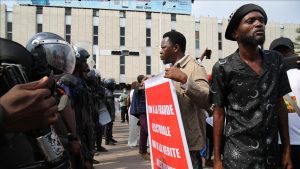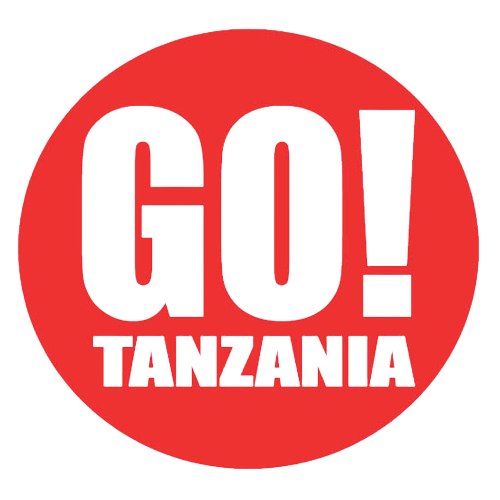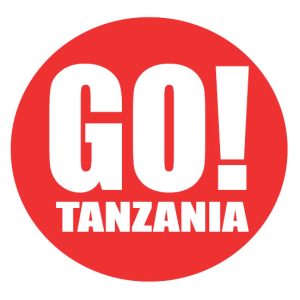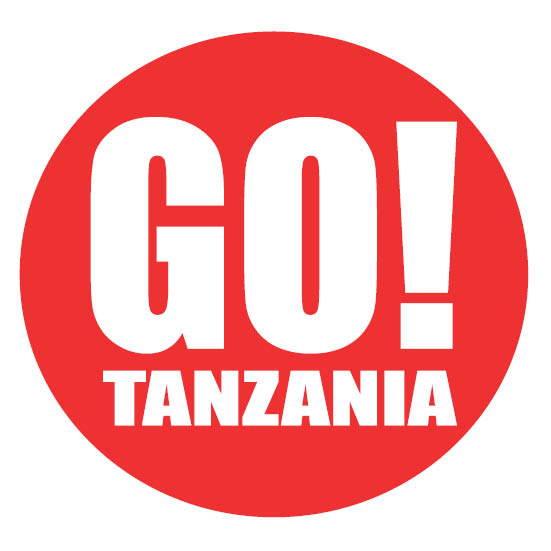Incumbent President Felix Tshisekedi fighting for 2nd term against 19 candidates

KIGALI, Rwanda Millions of voters in the Democratic Republic of Congo are heading to the polls this week for presidential and legislative elections. Around 44 million people will cast their ballots Wednesday, with the provisional results expected on Dec. 31.
Whoever wins the most votes in the first round becomes the next president, with no provision for a runoff round. The new president is expected to be sworn in on Jan. 20, 2024. This could be the second peaceful power transfer in the country’s history since independence from Belgium in June 1960.
Voters on the same day will also be electing 500 members of the National Assembly, members of 26 provincial assemblies and municipal councilors. The national electoral body designated 75,000 polling stations across the country. But some people in the Rutshuru and Masisi territories in North Kivu province will not be able to vote due to violence, representing about 11% of voters.
For the first time, Congolese in the diaspora will take part in the elections after authorities allowed voting from abroad. The national electoral body designated embassies in five countries for voting including France, Belgium, South Africa, the US, and Canada.
Who are the main candidates?
The presidential election pits incumbent President Felix Tshisekedi against 19 other candidates including Moïse Katumbi, his main rival, a successful businessman who served as governor of Katanga province. The owner of the TP Mazembe football club is running under the “Together for the Republic” party.
They also include Martin Fayulu, another great rival who emerged second in the 2018 presidential elections, and Nobel Peace Prize winner Denis Mukwege, whose campaign was largely affected by meager resources.
Two female candidates were in the race including Marie-Josee Ifoku, who also ran in the 2018 election, and Joelle Bille. But the latter withdrew, leaving only Ifoku.
Electoral campaigns
The electoral campaign, held in relative calm, concluded on Monday ahead of Wednesday’s vote. But Human Rights Watch warned on Saturday that election-related violence risked undermining the vote following incidents last week between supporters of the rival candidates.
On Saturday, supporters of Tshisekedi’s ruling Union for Democracy and Social Progress (UDPS) party torched vehicles to protest Katumbi’s campaign in Lubumbashi. Similar incidents took place at Katumbi’s rally in Muanda city, which forced him to suspend campaigns in the area.
Clashes were also reported in Kinshasa over the weekend between UDPS activists and those of Fayulu. Tshisekedi, who is seeking a second five-year term to lead sub-Saharan Africa’s largest country, has promised more jobs, an end to the conflict in eastern DR Congo and more infrastructure once reelected.
He held his last rally in Kinshasa, just like Mukwege. Katumbi held his last rally in Haut-Katanga province in the DRC-Zambia border town of Kipushi, while Fayulu was in Sankuru and Lomami provinces. Katumbi has asked voters to protect the ballot boxes, even if it means sleeping on site.
Why the whole world is watching
The whole world is watching the election in DR Congo because, with a population of more than 100 million people, the country is endowed with enormous natural resources, according to analysts. About 70% of the world’s reserves of coltan, a metallic ore used to manufacture mobile phones, and 30% of the world’s diamonds as well as huge quantities of bauxite, cobalt, and copper are found in DR Congo.
Most of the minerals are found in the eastern part of the country, which has been reeling in conflict for more than two decades. The country this year joined the eight-member East African Community (EAC) bloc. “East Africa wishes and expects DRC elections to be free, fair, peaceful and credible.
We hope CENI (the national electoral body) lives up to the expectations of East Africans and delivers free, fair and credible elections,” Harold Acemah, a political scientist based in Uganda’s capital Kampala, told Anadolu. “As a neighbor and member of the East African Community, a credible election is good for peace, security and political stability in the region.
The DRC is facing many challenges and problems which are basically political in nature,” he said. The Independent National Electoral Commission (CENI) has promised to deliver free and democratic elections, defying pressure from politicians to postpone the polls. But opposition political parties have expressed reservations, accusing Denis Kadima, the head of CENI, of potential biases, being close to the DRC government.
The government and CENI have denied the accusations.
What are the key issues?
The general election is taking place against the backdrop of insecurity in the east and high poverty levels for the majority of Congolese people amid high living costs. More than 60% of DR Congo’s population lives below the poverty line, earning $2.15 a day.
For nearly three decades, eastern DR Congo has been reeling with insecurity posed by several armed groups such as M23 and Uganda’s Allied Democratic Forces (ADF), with thousands of people living in camps in the two most conflict-affected provinces of North Kivu and Ituri. About 6.9 million people are estimated to have been driven out of their homes by conflict since March 2022.
But on the eve of elections, Deputy Prime Minister and Minister of the Interior Peter Kazadi told a press briefing in Kinshasa that “security arrangements were being made for the smooth running of this electoral operation.” “Our security forces have taken all the necessary measures to face this security challenge imposed on us by the enemies of democracy and our people,” he said.
Arnold Tshiswaka, a Congolese rights activist, told Anadolu the key issue for him was Tshisekedi’s promise to end the conflict in eastern DR Congo. He also cited the lack of jobs among many Congolese as a worrying concern. “I hope that whoever wins the elections will make a commitment to seek and find a lasting political solution to the challenges and problems facing the DRC through peaceful negotiations with all stakeholders.
The EAC and African Union should assist the DRC in this regard and broker a peaceful settlement of disputes in the DRC,” said Acemah, who is a retired career diplomat.
The road to elections
Initially, there were 26 candidates before others pulled out. Seven candidates voluntarily withdrew from the race. Three, though less influential, allied with Tshisekedi including Noël Tshiani, Joëlle Bile and Patrice Majondo-Mwamba.
Another four withdrew in favor of Katumbi, including former Prime Minister Matata Ponyo Mapon, Kasai legislator Delly Sesanga Hipungu, former lawmaker Franck Diongo and businessman Seth Kikuni. Despite the withdrawals from the race, the ballot paper has 26 names. Analysts say a divided opposition leaves Tshisekedi as the likely favorite.
Logistical concerns
The UN has authorized its mission in Congo (MONUSCO) to offer limited logistical support to the electoral body after the government asked for assistance in transporting equipment to areas difficult to access. The European Union canceled its observation mission last month after Congolese authorities reportedly failed to authorize the use of satellite equipment for its deployment.
Also, the East African Community bloc said late Monday that it will not be physically present in the DR Congo to observe the country’s general elections after relevant authorities did not grant permission to undertake the exercise.
Anadolu



